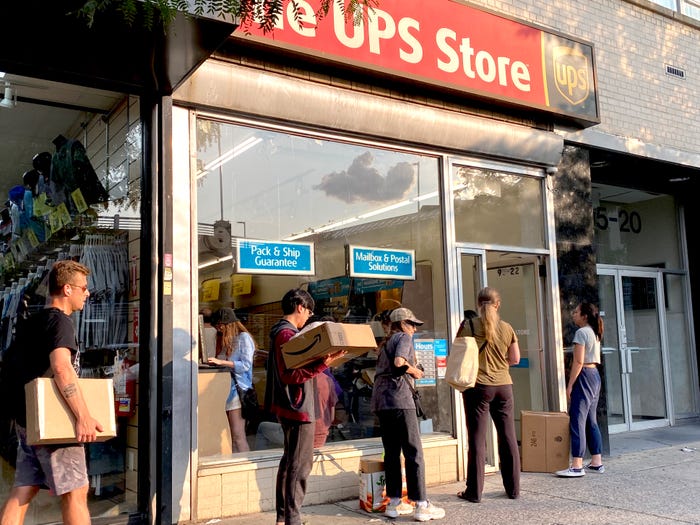UPDATE: US consumers are facing a surge in shipping costs and confusion as new tariffs take effect, impacting their online purchases significantly. Problems with UPS have exacerbated the situation, leaving customers stranded with high fees and disrupted deliveries.
In late August 2023, Rich DeThomas from Huntsville, Alabama, ordered a dozen bottles of red wine from Italy, only to find his shipment stuck in UPS’s warehouse due to recent tariff changes. After receiving a replacement, he was slapped with a $13 fee for “abandoning” the original case. “What the hell? What’s going on?” DeThomas exclaimed, echoing the frustration of many consumers grappling with the realities of new tariffs imposed by the Trump Administration.
As of August 2023, the end of the de minimis loophole has made shipping small orders more complicated and costly. Previously, shipments valued under $800 were exempt from tariffs, a benefit many consumers relied on. Now, the chaos at UPS is forcing customers to act as amateur customs brokers, navigating the complexities of tariff fees and shipment rules.
Katie Golden, a reseller from Depop, encountered a shocking $769 bill for a $179 order of used clothes from the UK. “It shouldn’t be this hard to order a package,” she said, highlighting the confusion that consumers are facing as they adapt to the new tariff landscape.
UPS has not responded to inquiries about DeThomas and Golden’s experiences, leaving many customers in limbo. Reports indicate that US-bound packages are being held for days or even weeks, with some shipments at risk of being returned or disposed of due to customs issues.
Economists warned that the repercussions of these tariffs would ripple through the economy, contributing to rising prices and complicating international shipping. Tom Strohl, president of consulting firm Oliver Wight Americas, advised consumers to reconsider purchasing items abroad if these tariff issues persist. “If customers are confused, it’s going to affect their brand,” he noted, emphasizing the potential fallout for businesses as holiday shopping season approaches.
The situation has left individuals like Kunal Sharma, a Canadian business owner, worried about how the chaos will unfold during the upcoming Black Friday sales. “I can’t even imagine how bad it’ll get,” he stated, reflecting the anxiety many feel as they anticipate a busy holiday shipping season.
Meanwhile, North Carolina resident George Hayes is also reconsidering his purchases from Japan, where he imports popular Otaku goods. Hayes recently paid around $700 in tariffs for his last shipment and is now faced with the daunting task of reporting the country of origin for each item, a requirement that complicates his buying process.
“I wish we could have that [de minimis loophole] again,” Hayes lamented, as many consumers reflect on how much simpler international shopping used to be.
With the holiday season fast approaching, consumers are urged to stay informed about tariff implications on their online orders. As UPS and other shipping companies grapple with the fallout from these policy changes, the urgency for consumers to navigate this new landscape has never been more critical.
For those affected by UPS’s tariff chaos, sharing experiences could provide valuable insights into how to manage these new challenges. If you have a story to tell, reach out to share your experience with tariffs and shipping delays as these developments continue to unfold.





































































